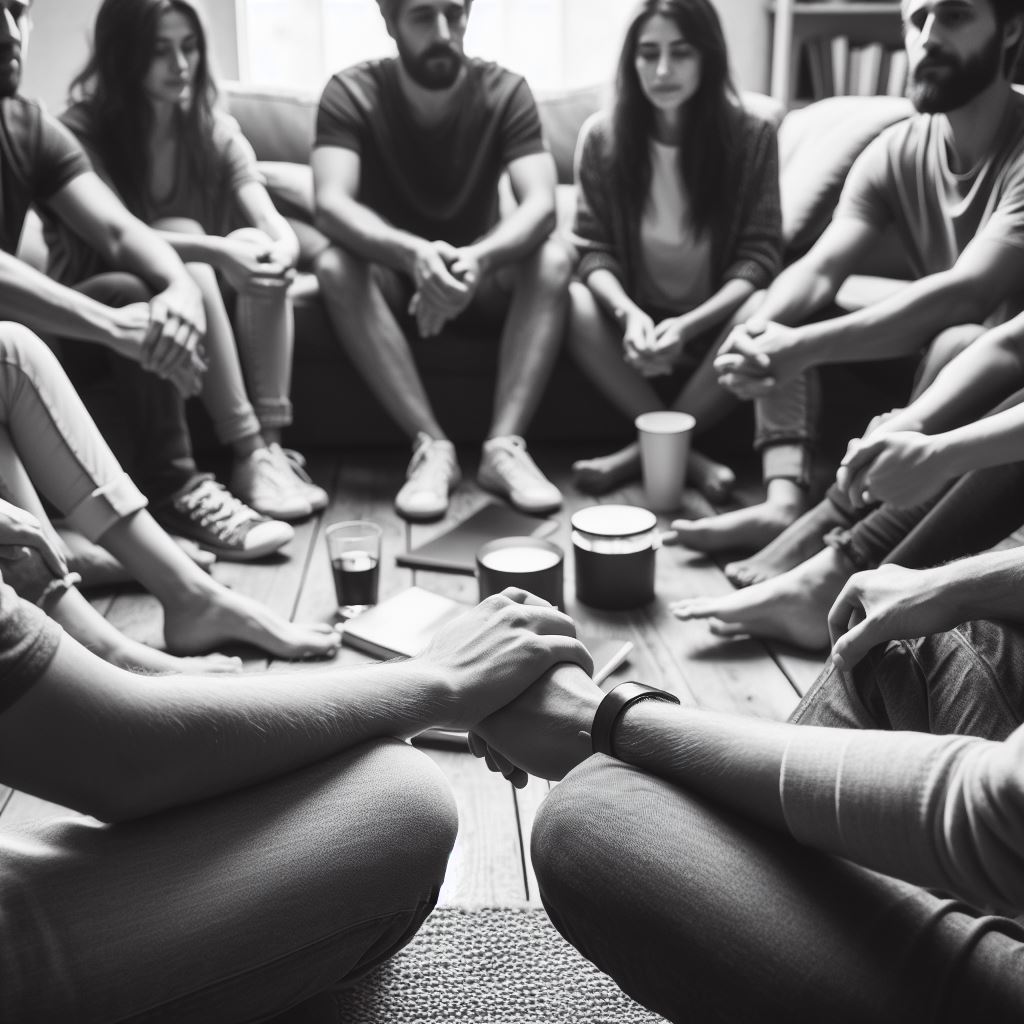“Enjoy…crave…talking about my feelings in a group?” Ten years ago, that statement would have had me scoffing. Most of us battling addiction know the pattern: isolation, avoidance, anything but confronting ourselves and opening up. But here’s the truth I discovered: group therapy can be the secret sauce to unlocking lasting sobriety, especially if you’re hesitant about medication.
It’s no secret that traditional medical detox and therapy are crucial cornerstones of recovery. Yet, research shows an additional, often overlooked element: the power of peer support. Sharing your struggles, triumphs, and vulnerabilities with others who understand firsthand – that’s where the magic happens.
Why Group Therapy Works:
While individual therapy provides invaluable guidance, group therapy offers a unique synergy:
- Belonging: You discover you’re not alone. The shared experience fosters a sense of community, reducing isolation and shame.
- Validation: Hearing others grapple with similar challenges validates your own struggles, normalizing your experiences.
- Hope and Inspiration: Witnessing others’ peer recovery journeys ignites hope and motivates you to stay on your path.
- Accountability: The group creates a supportive network, gently holding you accountable to your goals and commitments.
- Skill Development: Through shared experiences and group discussions, you learn valuable coping mechanisms, communication skills, and relapse prevention strategies.
More Than Just Talk:
Yes, group therapy involves sharing, but it’s a structured process with clear guidelines for fostering a safe and respectful space. Here are some key principles:
- Respect: Treat everyone with empathy and understanding, just as you’d want to be treated.
- Open-mindedness: Embrace diverse perspectives and experiences, fostering a supportive and inclusive environment.
- Thoughtful sharing: Be mindful of your words and their impact on others, focusing on your own journey without judgment.
- Honesty: Commit to being truthful and authentic, for your own growth and to benefit others.
- Respect the facilitator: Trust the expertise and guidance of the therapist leading the group.
My People, My Lifeline:
I vividly remember the transformative power of group therapy. The people I met there weren’t just temporary connections; they became my chosen family, a support system that remains crucial to this day.
So, if you’re apprehensive about group therapy, remember: it’s not about forced vulnerability or judgment. It’s about finding your tribe, sharing your authentic self, and discovering the immense strength in shared experiences. It’s the “secret sauce” that can empower you to crack the code to lasting sobriety and build a life you truly deserve.
Remember: Seek out a qualified therapist and choose a group that aligns with your specific needs and preferences. This journey to rediscover yourself and build genuine connections starts with a single step. Take it, and watch your world transform.

Finding Your Local Support: Free Sobriety Groups in the US, Australia, Canada, and UK
Remember, seeking support is crucial on your journey to sobriety. Fortunately, numerous free in-person groups are available across the US, Australia, Canada, and the UK, offering a sense of community, understanding, and guidance. Here are some resources to get you started:
United States:
- Alcoholics Anonymous (AA): A global organization with countless local chapters offering meetings based on the 12-step program. Find locations at [https://www.aa.org]
- SMART Recovery: Offers science-based self-management and support groups. Find locations at [https://smartrecovery.org]
- Moderation Management: Focuses on controlled drinking rather than complete abstinence. Find locations at [https://moderation.org]
Australia:
- LifeRing Secular Recovery: Offers non-religious support groups based on the “Three Rings” model. Find locations at [https://lifering.org/f2f-meetings/international-meetings/australia/]
- National Alcohol and Drug Helpline: 1800 250 008 – Provides information and referrals to treatment services. [https://www.health.gov.au/contacts/national-alcohol-and-other-drug-hotline]
- Turning Point: Offers various addiction support services, including support groups. Find locations at [https://www.turningpoint.org.au]
Canada:
- Canadian Centre on Substance Use and Addiction: Provides information and resources on addiction, including a directory of support groups. Find more at [https://www.ccsa.ca]
- Alcoholics Anonymous (AA): Find locations at [https://www.aa.org]
- SMART Recovery: Find locations at [https://www.smartrecoverytoronto.com]
United Kingdom:
- Alcoholics Anonymous (AA): Find locations at [https://www.alcoholics-anonymous.org.uk]
- Drinkaware: Provides information and support on alcohol misuse. They also list local support groups at [https://www.drinkaware.co.uk]
- Turning Point: Offers addiction support services, including support groups. Find locations at [https://www.turning-point.co.uk]
